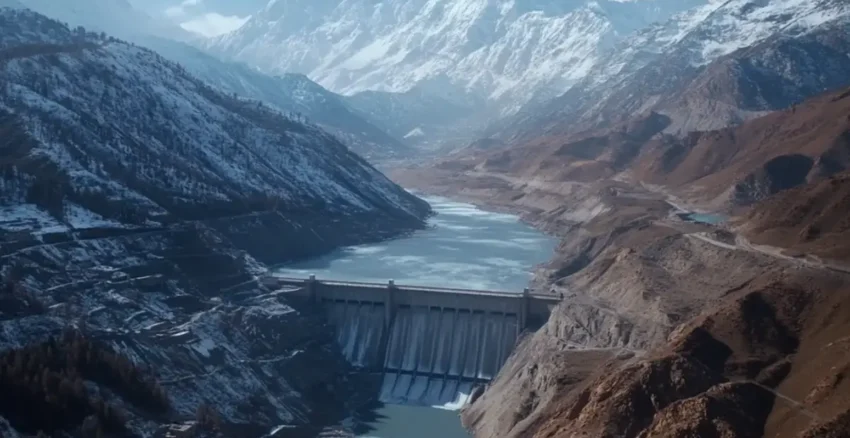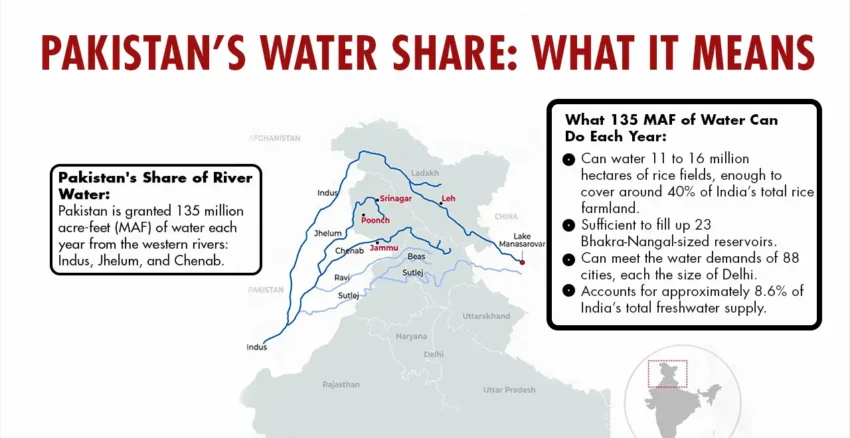India Suspends Indus Water Treaty After Kashmir Terror Attack
In a strong response to the recent terrorist attack in Pahalgam, Jammu & Kashmir, where 26 Indian tourists tragically lost their lives, the Indian government has suspended the Indus Waters Treaty (IWT) — a long-standing agreement that regulates river water sharing between India and Pakistan.

Water-sharing pact halted amid rising tensions with Pakistan
The decision was taken by the Cabinet Committee on Security (CCS), chaired by Prime Minister Narendra Modi, signaling a significant escalation in diplomatic pressure on Pakistan. India has accused Pakistan of backing cross-border terrorism and has demanded accountability.

What is the Indus Waters Treaty?
Signed in 1960 with help from the World Bank, the Indus Waters Treaty is one of the world’s most successful water-sharing agreements. It divides the six rivers of the Indus River system between the two countries:
Pakistan gets full rights to:
Indus, Jhelum, and Chenab (Western rivers)India gets full control over:
Ravi, Beas, and Sutlej (Eastern rivers)
India is allowed limited usage of the Western rivers—for drinking, farming, and electricity—but cannot stop, divert, or store the water beyond what’s permitted.
Why Is This Important?
Pakistan heavily depends on the Western rivers. Nearly 80% of its water supply comes from this system. If India cuts off or limits this flow, even temporarily, it could deeply affect Pakistan’s agriculture, drinking water supply, and overall economy.
India uses about 20% of the system’s total water, mostly from the eastern rivers. However, in recent years, it has begun developing hydropower projects on Western rivers, which has led to objections from Pakistan—though India maintains it is within treaty limits.
What Happens Next?
Pakistan reacts strongly:
Pakistani leaders have called the move “cowardly and immature,” claiming India is weaponizing water to pressure them.India stands firm:
Officials say the treaty will remain suspended until Pakistan takes visible action against terrorism.Rising tensions:
This suspension adds to the strain in already tense Indo-Pak relations. If the situation escalates, it could affect regional peace and water security in South Asia.
India and Pakistan share river water based on a 64-year-old agreement. After a deadly attack in Kashmir that India blames on Pakistan, India has decided to pause this water-sharing deal. This decision could seriously affect Pakistan, as it depends heavily on this water for farming and daily life.
Inflect.in — Your daily dose of stories that inform, inspire, and ignite curiosity. Follow us for more!
Inspire
Latest Post

AI in Healthcare: Smarter, Faster, and Accessible

Is Co-Sleeping Safe for Babies? Pros, Risks,

Pomegranate Benefits: Why Eating Anar or Drinking

Ma Yansong: Shaping the Future of Architecture

AI in Healthcare: Smarter, Faster, and Accessible

Is Co-Sleeping Safe for Babies? Pros, Risks,

Pomegranate Benefits: Why Eating Anar or Drinking








